9 start with D start with D
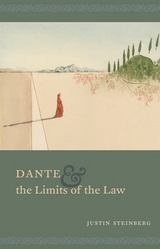
Examining how Dante probes the limits of the law in this juridical otherworld, Steinberg argues that exceptions were vital to the medieval legal order and that Dante’s otherworld represents an ideal “system of exception.” In the real world, Dante saw this system as increasingly threatened by the dual crises of church and empire: the abuses and overreaching of the popes and the absence of an effective Holy Roman Emperor. Steinberg shows that Dante’s imagination of the afterlife seeks to address this gap between the universal validity of Roman law and the lack of a sovereign power to enforce it. Exploring the institutional role of disgrace, the entwined phenomena of judicial discretion and artistic freedom, medieval ideas about privilege and immunity, and the place of judgment in the poem, this cogently argued book brings to life Dante’s sense of justice.
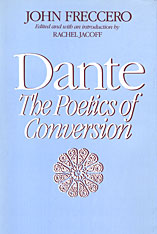
John Freccero enables us to see the Divine Comedy for the bold, poetic experiment that it is. Too many critics have domesticated Dante by separating his theology from his poetics. Freccero argues that to fail to see the convergence of the letter and the spirit, the pilgrim and the poet, is to fail to understand Dante’s poetics of conversion. For Dante, body and soul go together and there is no salvation that’s purely intellectual, no poetry that is simply literary.
The essays that form this book were originally published between 1959 and 1984. They are arranged to follow the order of the Comedy, and they form the perfect companion for a reader of the poem. With these essays assembled for the first time, we can now see Freccero’s stature: he is the best contemporary critic of Dante. Freccero is that rare article, a critic of eclectic and not dogmatic persuasion. Throughout Freccero operates on the fundamental premise that there is always an intricate and crucial dialectic at work between Dante the poet and Dante the pilgrim, and that it is this dialectic that makes the work so profoundly dramatic, one of the great novels of the self.
Thanks to Freccero we readers have the Comedy whole again. Freccero calls upon medieval philosophy, cosmology, science, theology, and poetics to enable us to traverse Dante’s moral landscape without losing our way in the confusions of minute exegeses. In a secular age Freccero enables us to see this poem as what it is, something wholly other than what we might believe or write. In doing so he shows us the most that language can achieve in any age, secular or not.
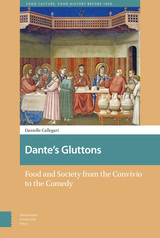
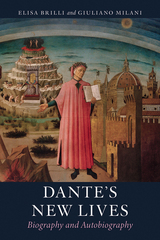
Numerous books have attempted to chronicle the life of Dante Alighieri, yet essential questions remain unanswered. How did a self-taught Florentine become the celebrated author of the Divine Comedy? Was his exile from Florence so extraordinary? How did Dante make himself the main protagonist in his works, in a literary context that advised against it? And why has his life interested so many readers? In Dante’s New Lives, eminent scholars Elisa Brilli and Giuliano Milani answer these questions and many more. Their account reappraises Dante’s life and work by assessing archival and literary evidence and examining the most recent scholarship. The book is a model of interdisciplinary biography, as fascinating as it is rigorous.
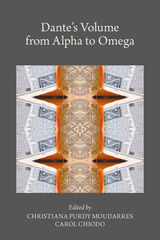
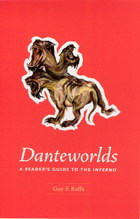
One of the greatest works of world literature, Dante Alighieri’s The Divine Comedy has, despite its enormous popularity and importance, often stymied readers with its multitudinous characters, references, and themes. But until now, students of the Inferno have lacked a suitable resource to guide their reading.
Welcome to Danteworlds, the first substantial guide to the Inferno in English. Guy P. Raffa takes readers on a geographic journey through Dante’s underworld circle by circle—from the Dark Wood down to the ninth circle of Hell—in much the same way Dante and Virgil proceed in their infernal descent. Each chapter—or “region”—of the book begins with a summary of the action, followed by detailed entries, significant verses, and useful study questions. The entries, based on a close examination of the poet’s biblical, classical, and medieval sources, help locate the characters and creatures Dante encounters and assist in decoding the poem’s vast array of references to religion, philosophy, history, politics, and other works of literature.
Written by an established Dante scholar and tested in the fire of extensive classroom experience, Danteworlds will be heralded by readers at all levels of expertise, from students and general readers to teachers and scholars.
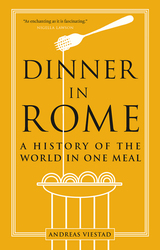
“There is more history in a bowl of pasta than in the Colosseum,” writes Andreas Viestad in Dinner in Rome. From the table of a classic Roman restaurant, Viestad takes us on a fascinating culinary exploration of the Eternal City and global civilization. Food, he argues, is history’s secret driving force. Viestad finds deeper meanings in his meal: He uses the bread that begins his dinner to trace the origins of wheat and its role in Rome’s rise as well as its downfall. With his fried artichoke antipasto, he explains olive oil’s part in the religious conflict of sixteenth-century Europe. And, from his sorbet dessert, he recounts how lemons featured in the history of the Mafia in the nineteenth century and how the hunger for sugar fueled the slave trade. Viestad’s dinner may be local, but his story is universal. His “culinary archaeology” is an entertaining, flavorful journey across the dinner table and time. Readers will never look at spaghetti carbonara the same way again.

Leonora Bernardi (1559–1616), a gentlewoman of Lucca, was a highly regarded poet, dramatist, and singer. She was active in the brilliant courts of Ferrara and Florence at a time when creative women enjoyed exceptional visibility in Italy. Like many such figures, she has since suffered historical neglect. Drama, Poetry and Music in Late-Renaissance Italy presents the first-ever study of Bernardi’s life along with a modern edition of her recently discovered literary corpus, which mostly exists in manuscripts. Her writings are presented in the original Italian with new English translations, scholarly notes, and critical essays. Based on new archival research, the substantial opening section reconstructs Bernardi’s unusually colorful life. The second major section presents her pastoral tragicomedy Clorilli, one of the earliest secular dramatic works by a woman. The third section presents Bernardi’s secular and religious verse, which engaged with new trends in lyric and poetry for music, and was set by various key composers across Italy. The volume thus firmly positions Leonora Bernardi as a distinctive voice and dynamic player in the extraordinarily rich social, cultural, and geo-political networks of late-Renaissance Italy.
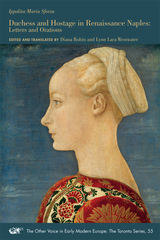
READERS
Browse our collection.
PUBLISHERS
See BiblioVault's publisher services.
STUDENT SERVICES
Files for college accessibility offices.
UChicago Accessibility Resources
home | accessibility | search | about | contact us
BiblioVault ® 2001 - 2024
The University of Chicago Press









